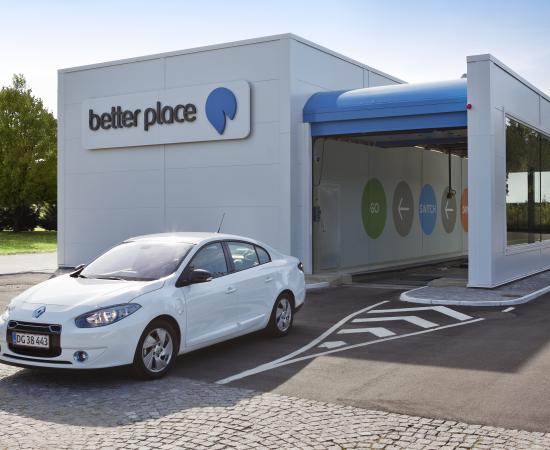International roaming, T-mobile and local SIMs
Submitted by brad on Fri, 2013-11-29 12:52Back from 5 weeks of international travel, I continue to seek the best solution in my quest for reasonably priced data service when outside the USA.
Data has become a must for me when on the road. In spite of the fact that we all lived without it a decade ago, I find it very frustrating if it's not available (or priced at $15,000 per gigabyte, which is the typical default roaming rate.) It's how I find directions, food, tourist info and keep in touch with others.
For a while my normal practice, if in a country for more than a few days, has been to purchase a local SIM card, and of course to have an unlocked GSM phone. Usually local SIMs are now available with 500mb to 1gb of data for $10 to $20. There are various web sites that list the local data providers to help you choose. The best prices tend to come from the MVNOs -- not the main incumbent carriers -- but even the big carriers tend to have decent prepaid deals. These usually come with some voice minutes and texting. This is useful though I don't do a lot of voice minutes when overseas due to time zones. I use them to reach local friends, book hotels, check restaurants, and with my companion.
 Annoyingly, though I have bought many of these SIMs, even for data, it's not nearly as nice and easy as it should be. A large fraction of the time, something goes wrong.
Annoyingly, though I have bought many of these SIMs, even for data, it's not nearly as nice and easy as it should be. A large fraction of the time, something goes wrong.
The hassles of local SIMs
- It can often be a pain to research and pick the right carrier, and then to find one of their stores, and get the purchase done. This was particularly true in the past, when selling a SIM to a random foreigner was not a common event at many stores. You have to go out of your way, and deal with people who don't speak your language. Some providers put a store in the arrival area of the airport, which is great, though they tend to be the more expensive cards.
- Until you get the new SIM, you are faced with very expensive roaming.
- Research does matter. In England (where language is not a problem) some carriers give you your data bundle free when you put 10 pounds on the card, others charge you those 10 pounds, leaving you with no voice minutes.
- Once you get the card, you often have to deal with web sites, menus and voice prompts not in your language. Setting up the voicemail is already a pain, and is far worse if you can't understand the prompts.
- Fixing odd problems is difficult in an unfamiliar system. My Orange card had a package of 500mb in it for 10 Euros, (great) but kept draining the money I put on it, leaving it unusable for making calls and texts, and though I can read and speak modest French, I was unable to find the cause.
- There are always issues of prepaid cards for short use. If you put too much in the card, it's wasted unless you are coming back soon. If you don't put enough in, you have to run around buying and adding refills -- again with prompts not in your language. Carriers would do well to let you add a lot to the card, and then refund it to you on request. This would make me put more in the card, and use the phone more, so it's a win for them.
- As noted, balances usually expire quickly, and cards often expire after 6 months or a year if not used. Though some cards are lasting longer.
- In some countries, they won't let you refill from a credit card, which means you must buy cards at local shops with cash, and always have a card handy -- then throw away the spare cards when you leave, wasted.
- You need to learn and give a new phone number to people. You may be able to forward your old number, but often that comes at a high cost. As a plus, you make it much cheaper for locals to call and text you, while making it more expensive for people back home to reach you (unless you forward and eat many times that cost.) You do get the "advantage" that incoming calls and texts are free.
- Text messages generally do not forward, so you will not see those unless you keep 2 phones -- and pay roaming.
- Calls back home may or may not be quite expensive, but usually are much less than roaming rates on your home SIM.
- If you move to a different country, you usually have to do it all over again -- shop again, and have a new number. In Europe, where it is common to hop from country to country this becomes a real issue. Some prepaid plans allow tolerable voice roaming in other countries, though data roaming tends to still be expensive on prepaid, in spite of a European order to reduce it.
- You are going to pay $10 to $20 plus your time for all this, and if all you want is to do a few voice minutes and some texts and keep your data usage to wifi, you might not come out ahead on a short trip.




 This got me thinking of how the economics of charging will work in the future when electric cars and charging stations are modestly plentiful. While the national grid average is 10 cents, in many places heavy users can pay a lot more, though there are currently special deals to promote electric cars. Often the daytime cost for commercial customers is quite a bit higher, while the night is much lower. Charging stations at offices and shops will do mostly day charging; ones in homes and hotels will do night charging.
This got me thinking of how the economics of charging will work in the future when electric cars and charging stations are modestly plentiful. While the national grid average is 10 cents, in many places heavy users can pay a lot more, though there are currently special deals to promote electric cars. Often the daytime cost for commercial customers is quite a bit higher, while the night is much lower. Charging stations at offices and shops will do mostly day charging; ones in homes and hotels will do night charging.